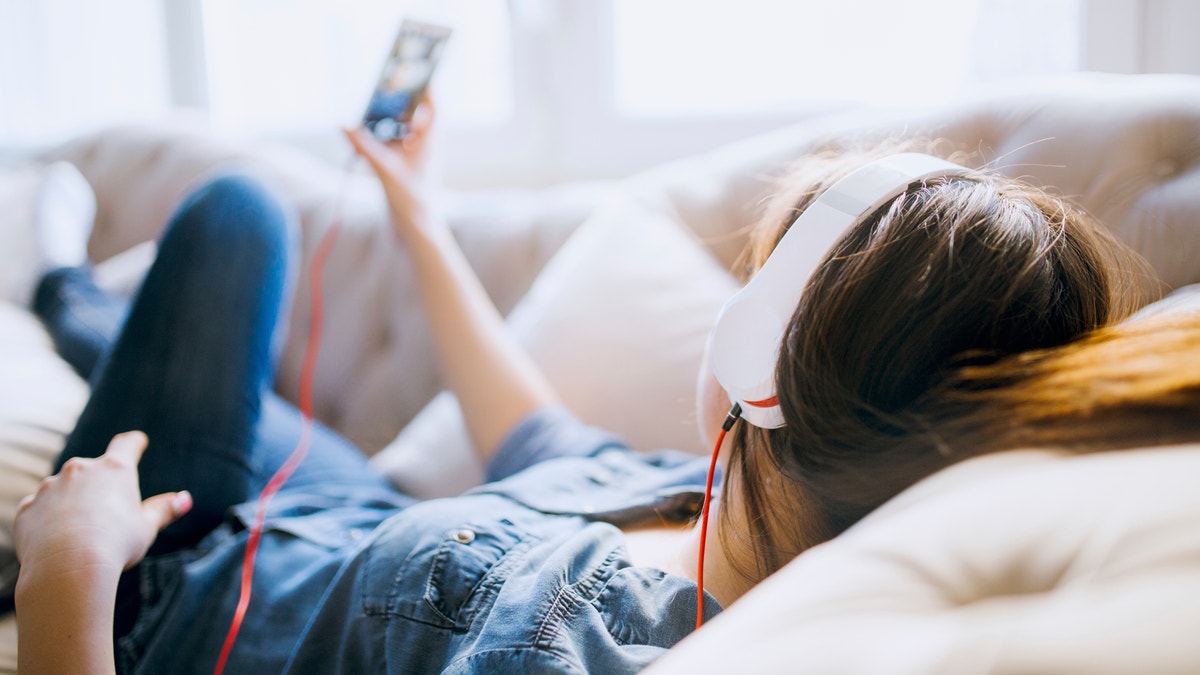
Cheerful young woman listening music in headphones on her mobile phone (iStock)
Parents who find themselves batting against technology for their teen’s attention may have some new ammunition, as a new study reports that more than a quarter of those exposed to loud music already reported early hearing damage.
The study, published Monday in the journal Scientific Reports, focused on the occurrence of tinnitus, or ringing sound in the ears, in students ages 11 to 17, OregonLive.com reported. The group included 170 adolescents that attended the same school in Sao Paulo, Brazil.
Students were polled on their listening habits, how often they were exposed to noisy environments and whether they had experienced tinnitus. Students were also given a hearing assessment inside an acoustic chamber, OregonLive.com reported.
While almost all students indicated they had participated in activities at too-loud volumes, researchers found that 29 percent of them had developed persistent tinnitus, which typically occurs in adults over age 50. About 55 percent of participants had experienced the condition within the past 12 months, OregonLive.com reported.
“It’s a growing problem, and I think it’s going to get worse,” study author Larry Roberts, a psychology, neuroscience and behavior professor at McMaster University in Ontario, said, according to OregonLive.com. “My personal view is that there is a major public health challenge coming down the road in terms of difficulties with hearing.”
Roberts added it’s common for a person to briefly hear ringing after listening to loud music, but it can be an early indicator of the damaging effects of noise exposure.
“The levels of sound exposure that are quite commonplace in our environment, particularly among youth, appear to be sufficient to produce cochlear injuries,” Roberts said in a statement. “The message is, ‘Protect your ears.’”
